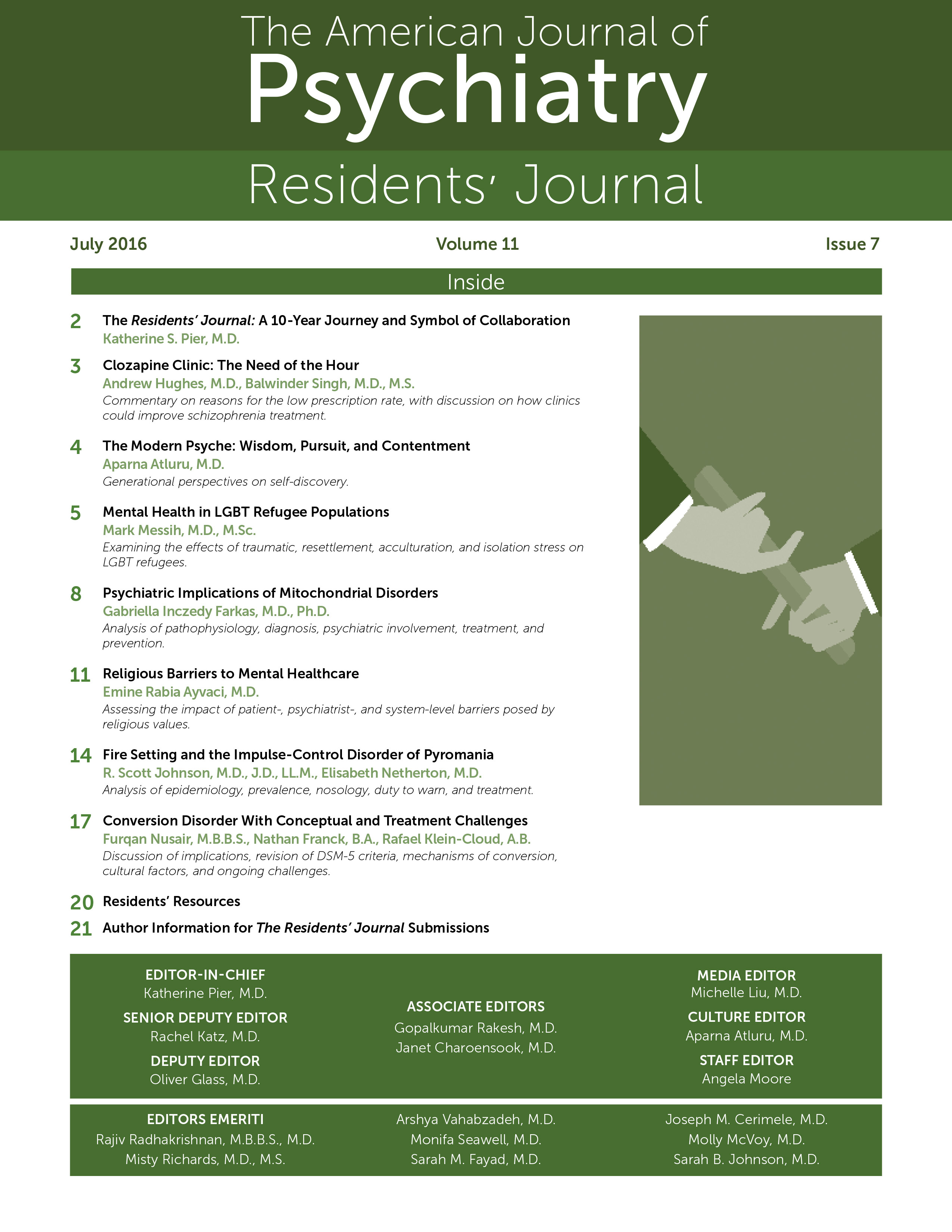In an effort to understand how the
Residents’ Journal developed into what it is today, I started the way I usually do: I reached back—through time—into the archives. I was inspired by a commentary called “Tis the Season for Termination” (
1). A resident in 2006, Amanda Mackley, was wise beyond her years of training. Anticipating the transfer of her outpatient caseload to an incoming resident that spring, she appreciated the possibility for error and setbacks. Done with care, however, she predicted that by modeling the art of attaching and bidding farewell, the transition could yield positive transformation. The
Journal is an example of what evolves from nine Editorial Board turnovers in 10 years and the countless residents who have shaped it. The object of immeasurable creativity and collaboration, it represents the expanding voice of psychiatry trainees.
The Journal is a promising vehicle for medical students, residents, and fellows to author and publish manuscripts early in their careers. To attract current and prospective authors, the Journal features many article types. These include commentaries, reviews, original research, and case reports. Our “Treatment in Psychiatry” forum integrates case vignettes with critical reviews of evidence-based management.
Books and movies allow for leisure and learning. Better for having been savored and shared, the experience can be enhanced by writing a review. “Drug Reviews” were introduced this past year as an instrument to facilitate mastery of psychopharmacology. “History of Psychiatry” articles acknowledge the origins of our field and shed light on its progress.
This academic year, we will launch an “Arts and Culture” column, a space for creative nonfiction essays and introspections. “Perspectives on Global Mental Health” will be an opportunity for authors to share insights from scholarly activities abroad. We will also be soliciting “Point-Counterpoint” articles on our Facebook page.
Many upcoming issues of the Journal represent the visions of Guest Section Editors, who serve as liaisons between authors and the Editorial Board. Medical students, residents, and fellows who have published in the Journal should apply for this leadership position. In this role, trainees solicit articles on salient topics of choice and assist in peer review. They are invited to record a podcast episode to expand on a chosen theme.
We hope that podcasts offer another entry point for trainees to interact with the Journal . The growth of this platform will be contingent on the dedication of any and all of you. We believe the podcasts could be an invaluable educational tool for readers to learn from and teach one another.
Ten years since its inception, the Residents’ Journal reflects our individual and collective journeys through training. Part of what has allowed it to adapt to change is an educational mission rooted in innovation. The APA is one of a handful of professional organizations that supports a trainee-led publication. The Journal is a powerful symbol of what we can produce through teamwork. It awaits your contribution.
Acknowledgments
Dr. Pier thanks the wonderful new Residents’ Journal Editorial Board, the editorial staff, and Rajiv Radhakrishnan, M.B.B.S., M.D., for their support assembling this issue.
